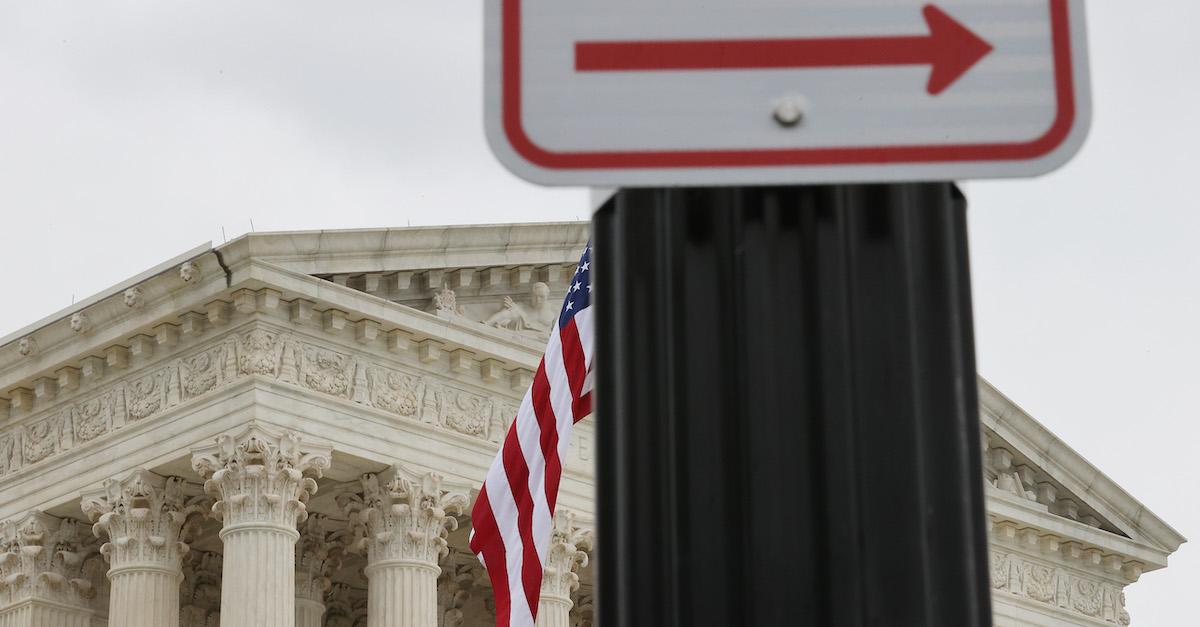
A civil rights group filed an amicus brief on Wednesday in an upcoming and high-profile Supreme Court case that could prove pivotal to American electoral politics at the federal level.
In the case stylized as Moore v. Harper, North Carolina’s GOP-controlled General Assembly sued the Tarheel State’s Supreme Court for invalidating serially-contested congressional maps that had been gerrymandered to benefit Republican Party candidates.
In the state court’s February 2022 decision, the 4-3 majority chided Republican legislators for “discriminating against certain voters by depriving them of substantially equal voting power.”
But the state legislature effectively ignored the state supreme court’s decision – issuing a second gerrymandered map. This prompted the state supreme court to order a special master to create the maps that are currently in effect for the upcoming midterm elections.
Republican legislators, led by Rep. Tim Moore, argue the state’s highest court has usurped their authority to regulate federal elections as they see fit under the U.S. Constitution’s Elections Clause.
The question presented in the case is whether the state’s judicial branch can nullify the state legislature’s regulations governing the election of U.S. senators and representatives. The operating theory of the case relies on the controversial “independent state legislature” theory – which suggests that state legislatures have the ultimate say over how federal elections are conducted within their respective states.
Taken to its logical conclusion, and viz. the facts of the present case that will soon be heard by the nation’s high court, applying that theory would mean the North Carolina Supreme Court was wrong to reject the partisan gerrymandered maps – even though they based their conclusion on the same state constitution that created both the General Assembly and the state supreme court itself.
In some ways, the theory also nullifies the notion of judicial review — the long-held theory that the courts exist for the specific reason of providing a channel by which people may seek a redress of grievances. Rather, the theory suggests, the courts must sit back and watch the process churn without intervening.
Some legal scholars consider the theory to be “debunked” and nonsensical ,but it is being tested, in full and on the merits, for the first time before a 6-3 conservative majority on the Roberts Court. And several conservative justices – past and present – have expressed interest in the theory.
The friend of court brief submitted by Common Cause argues that the GOP’s theory “would upend election administration nationwide” by nullifying “countless state constitutional provisions” and would “potentially eliminate any judicial forum for ensuring that state actors follow state election laws — while requiring legislatures to regulate even the most minute election details. ”
But, at a more basic level, the brief argues, the theory is “inconsistent with constitutional text, structure, history, and precedent.”
The filing goes on to say that the Election Clause clearly “does not abrogate” constraints on the state legislature imposed by the state constitution or “preclude state courts from enforcing those constraints” just because elections are at issue.
The brief says the Framers of the U.S. Constitution would have never understood or accepted that the Elections Clause gave state legislatures unchecked power over federal elections, but, rather, that they were the part of the process that enacts “Regulations.”
And, the filing heavily leans into the notion that the independent state legislature theory simply does not make much sense.
“[T]he Constitution’s structure confirms that the Elections Clause does not upend fundamental principles of judicial review,” the amicus brief continues. “Just as the term ‘Congress’ in the second half of the Elections Clause does not immunize Congress from judicial review, so too for state ‘Legislature[s]’ under the first half of the Elections Clause.”
Common Cause also marshals “founding-era history” and “a century of precedent” to make their case that the petitioners’ argument is foreclosed. The brief also notes a recent case in which Common Cause was the lead respondent, and where they lost, but wherein “all nine Justices agreed that state courts could apply substantive provisions in state constitutions to congressional redistricting.”
That theory, the civil rights group argues, is also inimical to the long-held idea that state supreme courts can review state laws.
From the filing at length:
The North Carolina Supreme Court carefully reviewed the text, history, and purpose of the North Carolina Constitution, including its Free Elections Clause — a clause with no analogue in the Federal Constitution. Its decision was the product of the principled state-court judicial review that this Court embraced in [Rucho v. Common Cause.]
Adopting Petitioners’ interpretation, by contrast, would wreak havoc. Running elections is already “extraordinarily complicated and difficult.” Petitioners’ theory could require state officials to run two elections simultaneously: one for state elections that are subject to the state constitution, and one for congressional elections that are not. Petitioners’ theory would also call into doubt indispensable features of States’ election apparatuses — which empower executive officials to administer elections and permit state courts to adjudicate election disputes. Perhaps worst of all, Petitioners’ theory would require this Court to second-guess state-court interpretations of state constitutions, often in an emergency posture on the eve of an election — an intolerable affront to the principles of federalism.
“It is rare to encounter a constitutional theory so antithetical to the Constitution’s text and structure, so inconsistent with the Constitution’s original meaning, so disdainful of this Court’s precedent, and so potentially damaging for American democracy,” the brief argues in summary. “This Court should reject Petitioners’ theory.”
The relevant amicus brief is here.
[image via Chip Somodevilla/Getty Images]